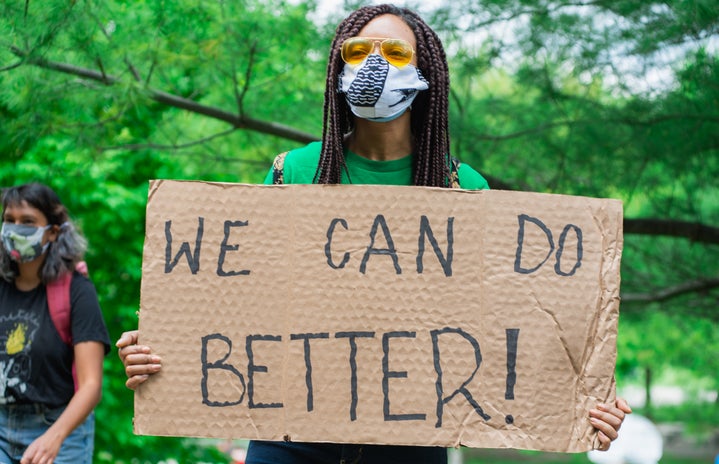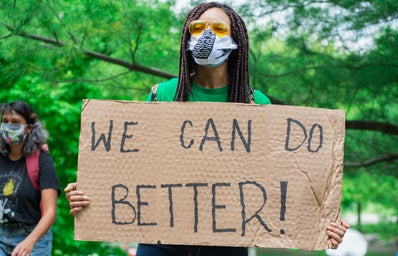Disclaimer: I am not a scientist. This is information I have gathered from articles and a podcast. I have cited the sources at the end.
Thrifting, decreasing use of plastics, carpooling, eating less meat and dairy. All things that we can do, and that some of us actively do to reduce our carbon footprint.
Carbon Footprint: The total greenhouse gas emissions that go into your way of life. (As defined by How to Save a Planet Podcast)
Over many years we’ve been told and given lists of things that we as individuals need to do to preserve our earth. Sustainability has almost been made a trend, being popularized through social media, promoting the use of reusable straws, bags, thrifting like stated before, and many more.
But what are major industries doing to help our climate?
In short, nothing. They have made it a habit of blaming consumers and have made climate change “our problem” to fix. “A major report released in 2017 attributed 70% of the world’s greenhouse gas emissions over the previous two decades to just 100 fossil fuel producers.” (Timperley, 2020). They claim they have solid emissions goals and are working towards a sustainable future for the company, but where is the proof?
As a society and country, we have been told that we need to change our lifestyles to sustain the planet. There have been debates, like that stated by the podcast, How to Save a Planet in their “Is Your Carbon Footprint BS?” episode on Spotify, about whether individual actions matter in terms of the environment.
There are many things we can do, but we also do not have as much influence over these industries and corporations that are the cause of major emissions. Policy is something that can help us when it comes to this situation. Industries need to be held accountable more often, and stricter laws need to be put in place.
The average American carbon footprint is 16 tonnes of emissions per year. The global average is 4.8 tonnes per capita, per year. We Americans produce almost four times the amount of emissions as the entire globe… however, overall global greenhouse gas emissions are 50 billion tonnes… BILLION. (Pierre-Louis, Waldholz, Ladd, Chinn 11:23).
Numerically, it does not seem like we have much of an impact, as individuals on the effects of greenhouse gas emissions. But, I think it is still beneficial that we all keep doing our part, and How to Save a Planet stated that, “individual actions can matter but that’s only if they’re used as a tool to effect change in the larger systems.”
We do have to keep in mind that there are many people out there in the world that do not have the privilege to worry about their carbon footprints and try to figure out new ways to live their lives.
But overall if we keep inspiring those around us (who are able) to act with an environmentally conscious attitude, we can make a difference. Communicating is the key to legitimate, helpful, and necessary change.
Pierre-Louis, Kendra, et al. How to Save a Planet, Season 1, episode Is Your Carbon Footprint BS?, Spotify, 2021.
Timperley, Jocelyn. “Who Is Really to Blame for Climate Change?” BBC Future, BBC, 18 June 2020, https://www.bbc.com/future/article/20200618-climate-change-who-is-to-blame-and-why-does-it-matter.


